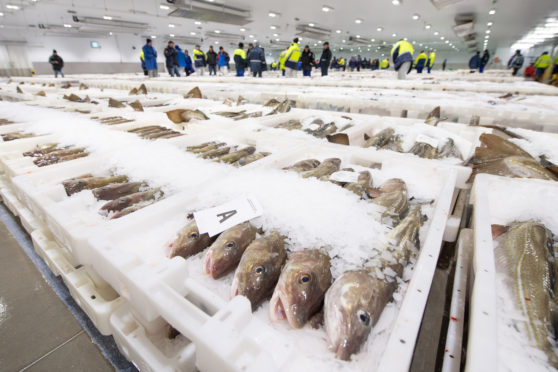The coronavirus pandemic could lead to lasting changes in food buying habits, Scotland’s rural economy secretary has claimed.
Fergus Ewing MSP said he has seen examples of “ingenuity and entrepreneurship” from individuals trying to sell their own produce following disruption caused by the crisis, adding that online working could prove a “step forward” for the food and drink sector in Scotland.
Speaking during virtual members’ question time on Thursday, the Rural Economy and Tourism Secretary said: “One of the things we may see as a legacy of Covid is people are more used to working online therefore will avail themselves of purchasing food online rather than of necessity in the shops and supermarkets and that I think would be a step forward for the food and drink sector in Scotland.
“Scotland Food and Drink (a new national directory) and the Scottish Government are working hard to enable that for more people as a workable option.”
His remarks followed a question by Aberdeen South and Kincardine MSP Maureen Watt, who said she had noticed an upsurge in local fish merchants who have taken to the road to sell their fish products, and asked what information the Scottish Government has on where local people can find deliveries serving their area to help the sector.
Pre-coronavirus, 80% of Scottish seafood and shellfish was exported, with the remaining 20% destined for UK food service and retail.
With the export market at a standstill, the sector is now completely reliant on the UK market to keep afloat, and even within the segment the food service sector is operating at minimal levels due to the UK lockdown.
This means UK retailers and some independents are taking it upon themselves to supply the country with locally caught seafood.
I’m very pleased that we’ve been able to provide this support and the purpose is to address financial hardship, in other words fishermen or shellfish producers who effectively have no or very little income at this time but still have overheads to pay.”
Fergus Ewing
Mr Ewing said some information is available on Scotland Food and Drink, a new national directory to connect the public with businesses that can supply local, Scottish food and drink products directly to consumers.
He added that the Scottish Government had also provided financial support of just under £23 million to support the sector, through three separate schemes.
He said: “I’m very pleased that we’ve been able to provide this support and the purpose is to address financial hardship, in other words fishermen or shellfish producers who effectively have no or very little income at this time but still have overheads to pay.”
Ms Watt said supporting the industry is of “huge importance” to many families and communities across the north-east of Scotland.
She said: “As we move forward and see markets reopening further, continuing support will be needed to ensure a full recovery and I am encouraged that some supermarkets have reopened their fish counters in recent days and that seafoodscotland has written to others urging them to do so.
“I would also encourage people looking for local services and those providers of such services to visit www.supportlocal.scot to see what is available in their communities.”

